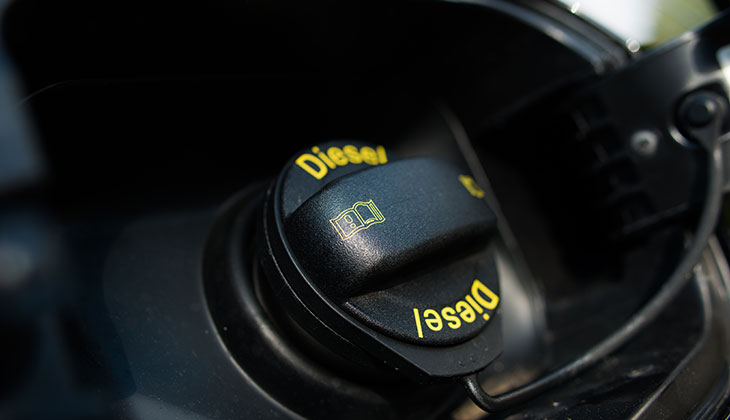Is this really the end for diesel engines?
Chris Hogan, 12th May 2015, Motor
That's what the press would like us to believe, after a UK Supreme Court decision made it difficult for the government to continue ignoring pollution from our roads.

Headlines like "Dirty diesel cars could be banished" and "Are diesel cars about to be phased out" came out immediately but is that realistic? What's actually happened and what will it mean for lorry, van and car drivers?
Supreme Court ruling
The Supreme Court is the highest court in the land with twelve judges who decide cases where there is argument about how law should be followed. A group of environmental lawyers call ClientEarth brought the case against the Department for Environment, Food & Rural Affairs (DEFRA), alleging that EU air quality laws are being breached and that DEFRA's current plans are inadequate.
On 29th April the court agreed with ClientEarth and ruled that DEFRA must perform a consultation process that will deliver, by the end of 2015, a plan by which the UK will meet EU-set levels of nitrogen dioxide (NO2) pollution in all areas.
Lord Carnwath, one of the Supreme court judges, said:"The new government, whatever its political complexion, should be left in no doubt as to the need for immediate action to address this issue."
What will happen now?
The case was brought because DEFRA's current plans meant that EU NO2 levels would only have been met by 2030, and then only in a few areas like London, the West Midlands and West Yorkshire. This would be twenty years after the EU's deadline and would result in millions of pounds worth of fines coming out of our taxes to be paid to the EU.
Although ClientEarth had asked for DEFRA to be made to produce new guidelines within three months, the Court set the deadline as the end of the year. Lord Carnworth added "...the Supreme Court by a unanimous judgement orders that the government must prepare and consult on new air quality plans under article 23(1) for submission to the European Commission no later than 31st December 2015."
What's the problem?
High levels of NO2 are largely (but not exclusively) caused by diesel engines and are thought to be responsible for rises in respiratory problems in the UK including asthma. Figures presented by ClientEarth showed that air pollution-related problems are responsible for an estimated 29,000 deaths each year, more than alcohol and tobacco combined.
Although new diesel engines have been subject to ever-increasing levels of pollution control, with many vehicles complying with Euro 5 and Euro 6 the new on the way in September, NO2 levels in the air have not come down as much as was hoped.
Businesses are keen to keep vehicles on the road for as long as possible, for obvious economic reasons, but that means older, more polluting vehicles are still pushing out high NO2 levels on a daily basis.
So what does that really mean for businesses?
In the short term it's going to cost money, that's for sure. We won't know what DEFRA's plans will be until the end of the year, possibly even later as they will be able to appeal for more time.
But already diesel vehicles are facing higher charges to enter congestion control areas. Plans have been announced to charge an extra ten pounds for diesels entering the London zone from 2020 onward.
And local authorities are beginning to charge diesel owners more for residential parking permits. Kensington and Chelsea charges £18 more for vehicles that do not comply with Euro 5 or Euro 6 and in January this year Islington Council voted to charge an extra £95 per year for all diesels.
Diesel backlash
This is really annoying as we were told to switch to diesels for better fuel economy and because lead in petrol was damaging the environment. Now the pendulum has swung the other way and diesel's in the dock.
Diesels now account for a third of all vehicles on our road so it's not really a stretch to think that the government will see penalising diesel owners as a nice little earner.
The Society of Motor Manufacturers and Traders (SMMT), the pressure group for the motor trade is already campaigning against this new demonisation of diesels, pointing out that current diesels are the cleanest ever, put out less CO2 than petrol equivalents and that power stations are actually the biggest producers of NO2.
Will electric and hybrid vehicles save us?
It's that last fact that confuses the electric car issue - even if we all switched to electric or hybrid vehicles over the next few years, the electricity we use to charge those vehicles will come from those power stations and increase their NO2 discharge.
At least it would be in about 60 locations rather than spread all over the country, making it easier to focus pollution control efforts compared with the 35 million vehicles in the UK.
What next?
Nearly all vans and lorries are diesel so trades and business people are in the firing line, there's no doubting that. Registrations of hybrid and electric vehicles have risen dramatically recently but there are very few hybrid lorries or vans available.
Conversions for small and Transit-sized vans are available from companies like Ashwoods Automotive though, and there is a government grant available which offsets the bulk of the conversion (see link below).
If you're running a diesel, particularly an older one, it might be a smart move to change to a newer one or even a hybrid. There may be few hybrid lorries and vans on the market now - but they are on the way.